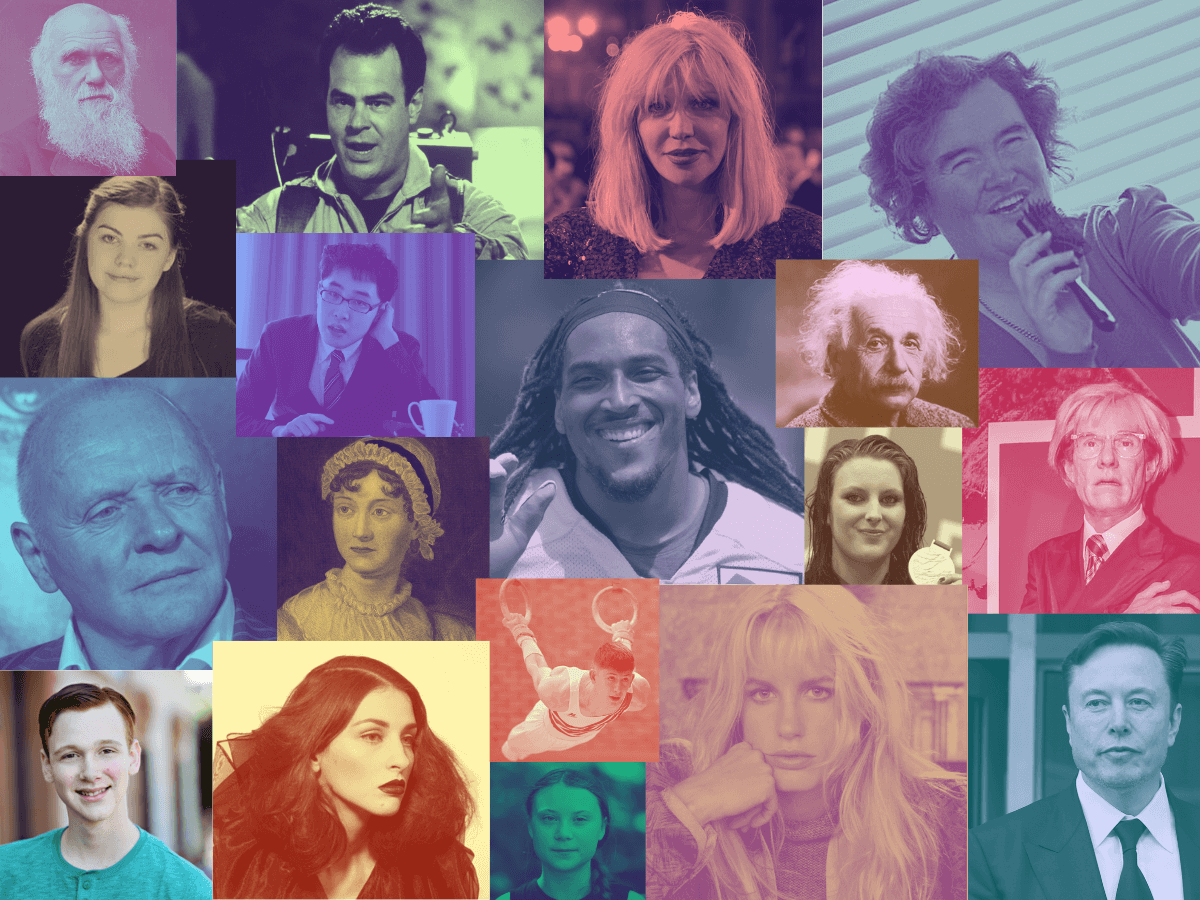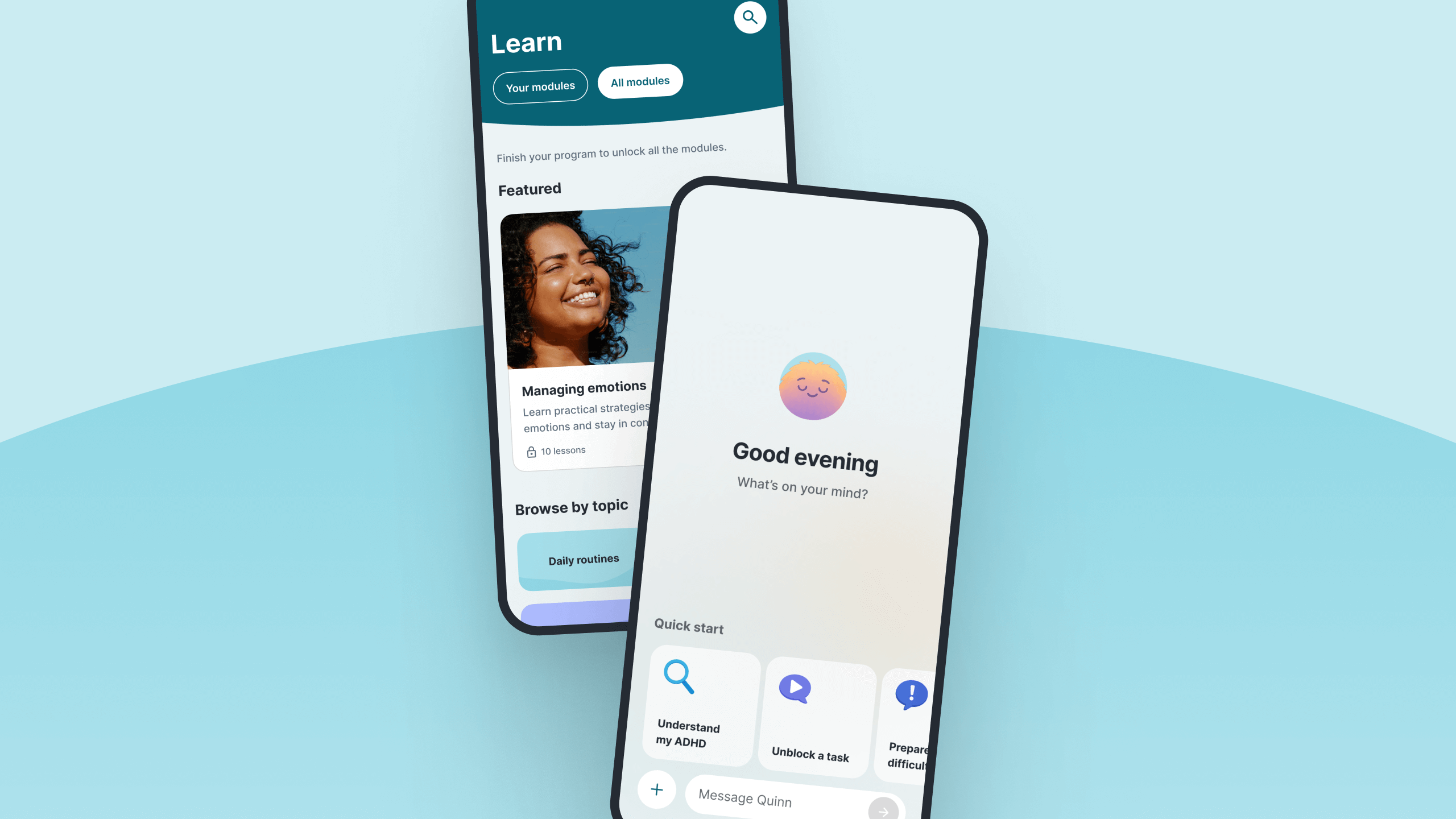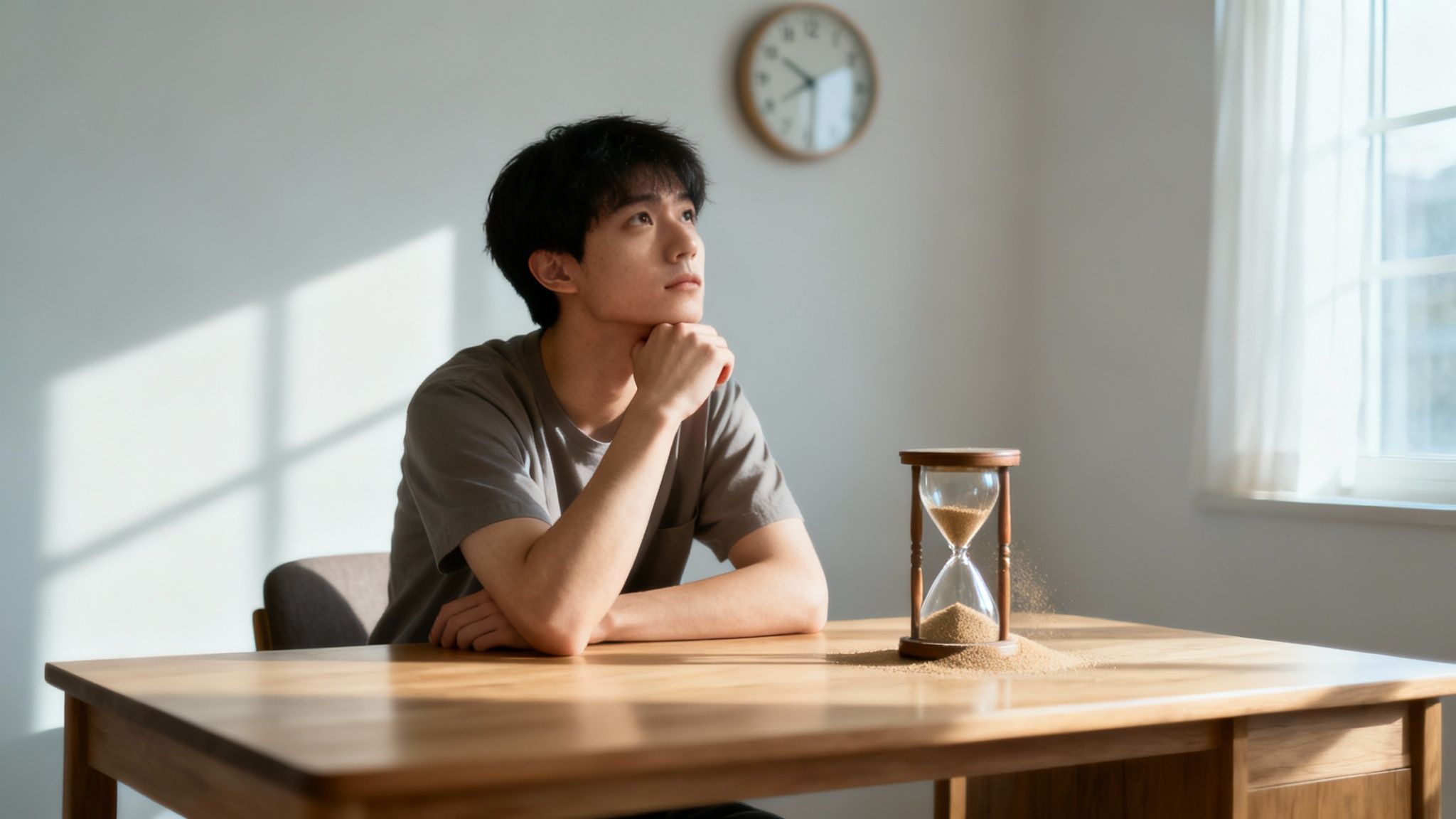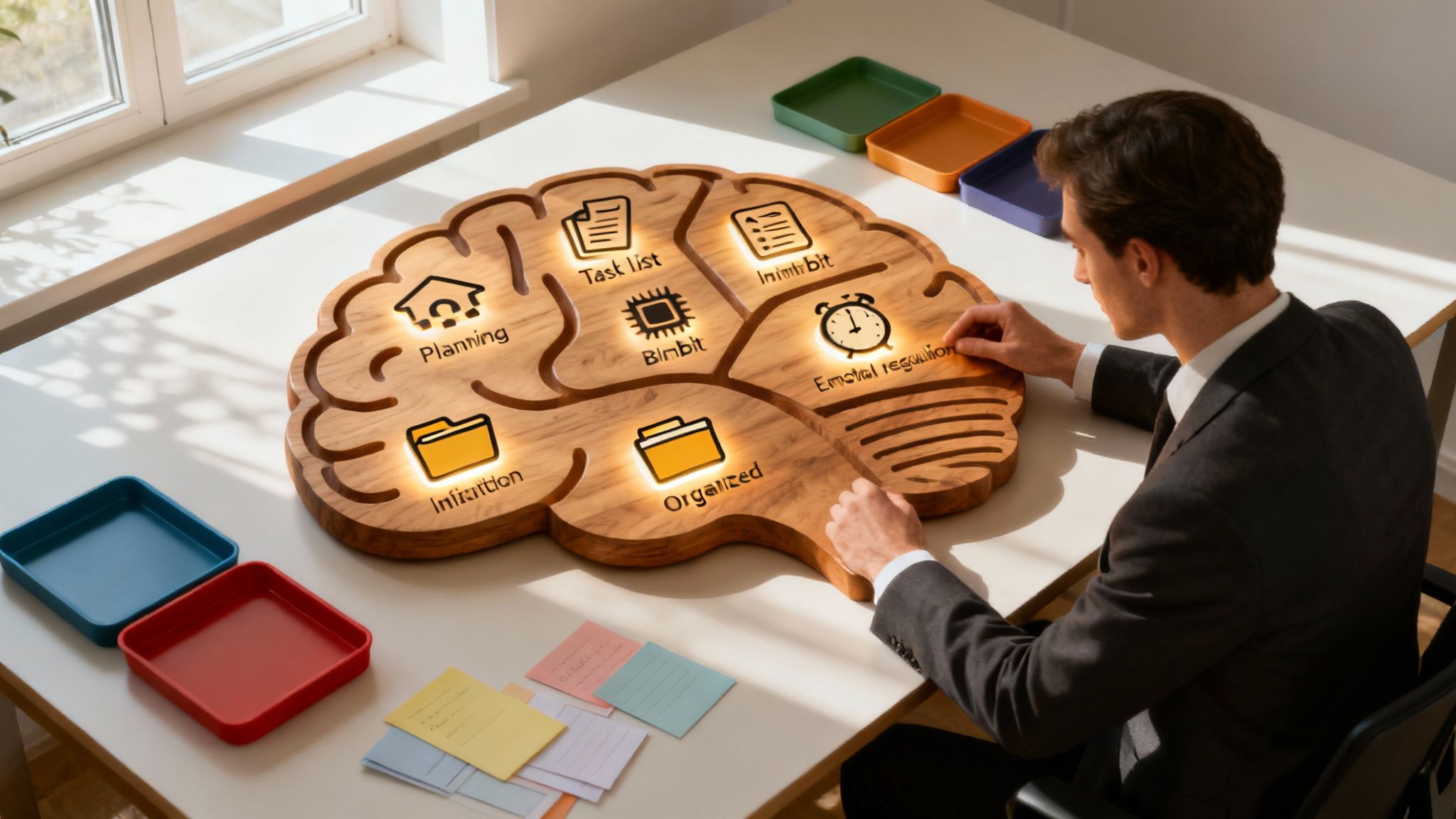Most days, I don’t feel like I’ve figured the whole “being a grownup” thing out.
When you have ADHD, most things related to “adulting” feel out of reach. My home is a mess and my finances aren’t much better; it’s a miracle if my bills are paid on time; and I can’t remember the last time I did my laundry. (I just ran out of clean clothes to wear… again.)
To compensate, many neurodiverse adults “mask” their ADHD, which can be exhausting. But the good news is that there are reminders you can give yourself when you recognize feelings of burnout creeping up due to constantly hiding who you are. Let’s dive in.
Why ADHD adults feel the need to mask their neurodiversity
The stigma of ADHD traits
Many of the traits associated with ADHD — disorganization, procrastination, forgetfulness — are often considered by others to be traits of "immature adults". It’s hard not to feel like you’re failing at adulthood when everyone else seems to manage just fine.
Having adult ADHD can feel shameful, like we have to hide the most intimate struggles in our lives for fear of being judged.
Some of us don’t even invite company over because we want to hide the endless, embarrassing clutter. For others, we avoid asking for help with finances, convinced we should've “figured it out by now.”
The commonality? We are determined to hide the parts of ourselves that make us feel like incompetent adults.
Feeling like an imposter
We tell ourselves to just carry on and get over it, so we expend energy just keeping up appearances.
I call it “Three-Kids-in-a-Trench-Coat Syndrome.” It’s the kind of imposter syndrome that comes with masking our ADHD symptoms to pass as “functional” adults. If you’ve ever felt like you had to pretend to be an Adult™, you probably know what I’m talking about: the constant struggle at home, at work, and in relationships, and trying to appear as though we have a handle on our responsibilities.
It’s exhausting. And sometimes, it can feel downright humiliating.
I want to offer you some affirmations and reminders so that, for just a moment, you can drop the mask and acknowledge the difficulties that come with being a “grownup” with ADHD. If you feel like three rambunctious kids stacked underneath a trench coat, these reminders are for you.
The impact of masking on ADHDers
Delayed or late diagnosis
ADHD is often thought of as a childhood disorder, and some researchers don’t believe adult-onset ADHD exists.1 However, many adults are diagnosed with ADHD, and their diagnosis is valid! They likely had ADHD as children; it just went undiagnosed due to a highly supportive environment, accommodations, and learned strategies that masked their symptoms.2
Social struggles
Masking is often done as a way to gain social acceptance, but in reality, it can cause the opposite effect, causing people to feel less authentic and less connected to others. Studies have even linked camouflaging to higher social anxiety and fewer close friends.3
ADHD burnout and shutdown
Constantly trying to hide or minimize symptoms is exhausting. Trying to pay attention in class while not tapping your feet or looking around the room too much takes extra self-control and brain-power, so masking often leads to burnout.4
Drop the mask: affirmations and reminders
1. It’s okay to not know how to do something
Too often, ADHD masking manifests as denying ourselves permission to ask questions or look clueless. We’re so used to having to hold everything together that we forget we’re allowed to not understand something or know how it all works.
No one knows everything — not even neurotypicals! Yet, we get so caught up in the juggling act, trying to keep every ball in the air, that we’re afraid to ever allow ourselves to be vulnerable. But it’s okay to not know how to do something. It’s okay to not know where to start. It’s okay to not have all the answers.
That doesn’t make you less of an adult; that makes you perfectly human.
2. Your maturity is not reflected in how well you adapt to neurotypical standards.
Read that one again.
Your maturity is not reflected in how well you can adapt to neurotypical standards.
Phew!
The world is not set up for people with ADHD to thrive. If you’ve ever tried to do your own taxes, you’ll know immediately that this is true: Many of the systems that we struggle to navigate were never set up with us in mind.
You are not immature or less of an adult because you forget to pay your bills on time (nor are you less of an adult because you keep intending to set up auto pay and forget about that, too).
You are not immature or less of an adult because your house is jam-packed with clutter and mess, or because you can’t seem to get anywhere on time.
You are still an adult... an adult with ADHD who just needs to learn to adapt the life skills you’ve acquired to be more compatible with your unique brain. That is not a shortcoming, no matter what anyone tells you.
3. You don’t have to be “good” at everything, or even most things.
ADHDers are notorious for their perfectionism, so let’s nip that in the bud right now: You don’t have to excel in every area of your life, or even most areas of your life. It’s actually okay if you’re not great at what most people call “adulting.” There is nothing that you’re “supposed” to be good at.
No “should”s here, other than the ones we’ve been pressured to adopt.
Being less skilled in something is morally neutral. At the end of the day, the value we place on certain things — a clean home, a consistent routine, even timeliness — are things we’ve made up.
And as such, there’s no imperative that says you must be excellent in everything you do. You’re allowed to be bad at things. You’re allowed to be “in progress.”
No matter your age or where you are in your ADHD journey, there will never come a point when you’re supposed to be “finished.”
And no, there’s no magical plateau you’ll reach in life where you’ve finally self-optimized yourself into the Perfect Adult With a Perfect System For All The Things. That kind of expectation is suffocating. If you can, be a little gentler with yourself, okay?
And one last thing: it’s okay to let other people see the mess.
Part of setting down this mask of adulthood is letting others in. It’s asking for support on the things you aren’t sure how to do. It’s letting a friend stop by and help you sort through the clutter. It’s reaching out to a coach or therapist when life has become unmanageable. It’s making ourselves vulnerable enough to show that we haven’t got it all figured out just yet.
Giving ourselves permission to struggle can be a powerful antidote to this relentless perfectionism that so many ADHDers deal with.
Because the truth is that you and I are not three kids precariously stashed underneath a trench coat. We’re adults who struggle with executive function, and who need to learn an entirely new set of skills to be able to adapt to this world’s many, many demands on us.
And that learning happens when we reach out and have the courage to say, “I’m stuck,” or “I don’t know how to do this,” or “I can’t do this alone.”
So, let the shame out into the light where we can finally see it clearly. Whatever you may be hiding that you fear will make you look less responsible — that’s the key to setting yourself free.
Life is messy. You’re allowed to be, too.
-
Sources
1 The American Journal of Psychiatry | Late-Onset ADHD Reconsidered With Comprehensive Repeated Assessments Between Ages 10 and 25
2 BMC Med | Guidance for identification and treatment of individuals with attention deficit/hyperactivity disorder and autism spectrum disorder based upon expert consensus
3 Simon Frasier University | "I wish I could just be myself": Social camouflaging, internalized stigma, and internalizing mental health problems in adult ADHD
4 SSM - Qualitative Research in Health | The experiences of adults with ADHD in interpersonal relationships and online communities: A qualitative study.









